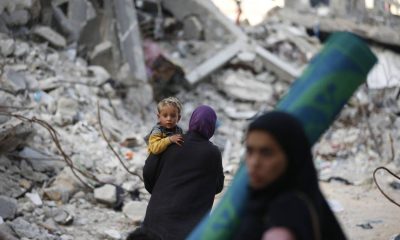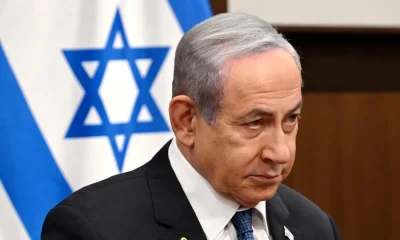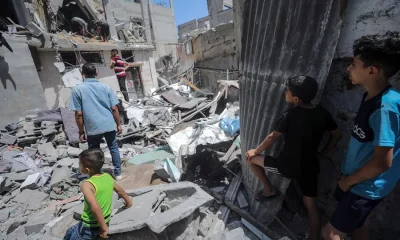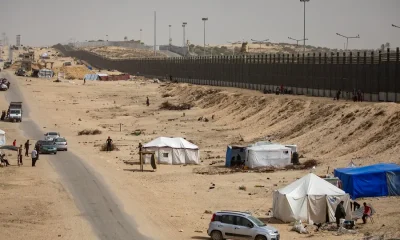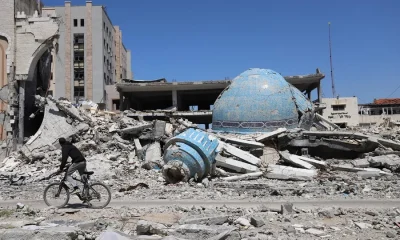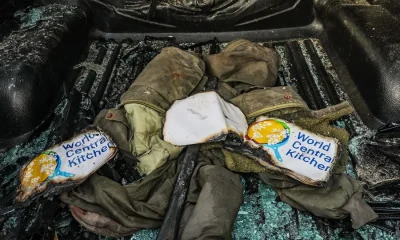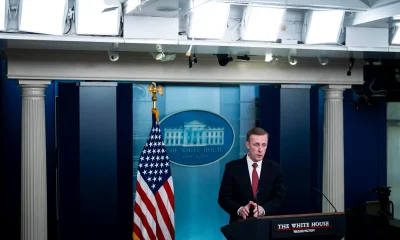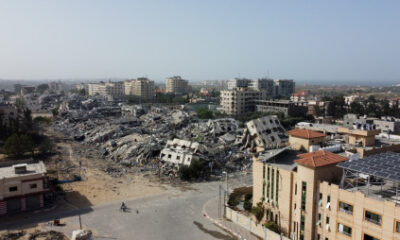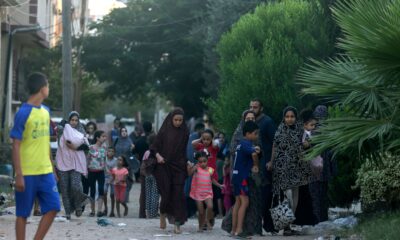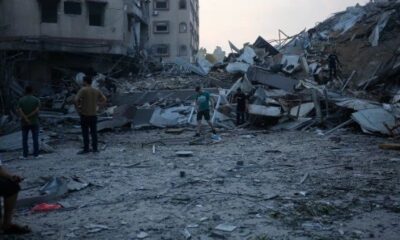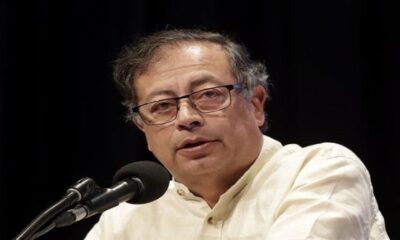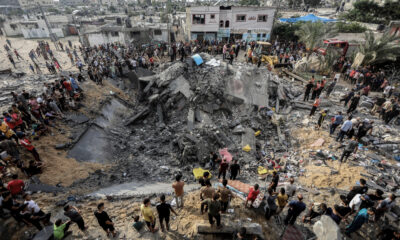International
Hamas rejects the Israeli proposal for a truce and demands a “comprehensivel” ceasefire and the withdrawal of troops
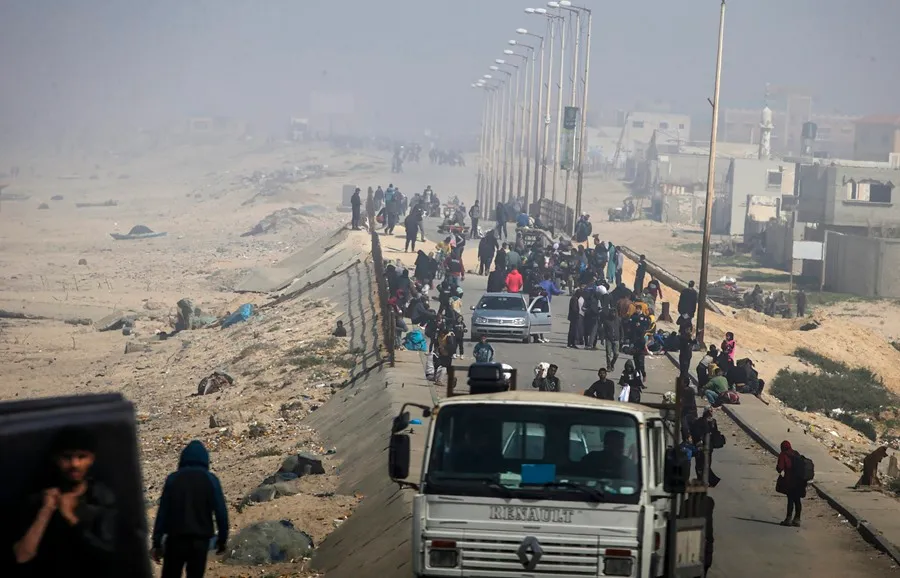
The Palestinian Islamist group Hamas has once again imposed as conditions for sealing a new truce agreement a “comprehensive” ceasefire and the withdrawal of Israeli troops from the Gaza Strip.
“The Hamas movement informed the mediating brothers that we adhere to our position and vision already presented on March 14, because the occupation did not respond to any of the basic demands of our people and our resistance,” the group reported in a statement.
Hamas cited “a comprehensive ceasefire, the withdrawal of the Gaza Strip, the return of the displaced and a real exchange of prisoners,” as its fundamental requirements.
Delegations of Israel and Hamas held indirect negotiations over the weekend in Doha – with the mediation of Qatar, Egypt and the United States – to achieve a new truce agreement, in which the Israeli delegation, headed by the head of the Mosad, David Barnea, proposed a new proposal, to which the Islamist group had to respond in the coming days.
In today’s statement, Hamas reiterates that “Netanyahu and his extremist government have all the responsibility to thwart negotiation efforts and hinder the achievement of an agreement so far.”
Israel called the demands of the Islamist group Hamas “delusional” on Tuesday and warned that “it will not submit to its demands.”
“The position of Hamas clearly shows that it is not interested in continuing negotiations to reach an agreement, and it is an unfortunate testimony of the damage of the Security Council’s decision,” said a statement from the Prime Minister’s Office.
Faced with this situation, Prime Minister Benjamin Netanyahu called on his negotiating team in Doha to return to Israel.
The proposal rejected by Hamas would contemplate the release of about 700 or 800 Palestinian prisoners, including a hundred convicted of murder, in exchange for the release of about 40 hostages, primarily women, children, the sick and the elderly in a first phase, according to leaks to the Hebrew press.
The new draft doubled the number of Palestinian prisoners that Israel would be willing to release, since weeks ago it was negotiated on a basis of 400 prisoners for 40 hostages, during a six-week truce.
A critical point in the negotiations is the profile of Palestinian prisoners to be released: Hamas demands about 30 prisoners sentenced to life imprisonment for terrorism, for every female soldier he delivers. Israel’s counter-offer is five of these prisoners for each female soldier.
On the ground, the situation is becoming more dramatic every day. At least 18 Palestinians have died in the north of the Strip in the last few hours, when dozens of “hungry” people entered the sea to collect the humanitarian aid packages launched from the air.
Twelve of them have drowned and six suffocated from the stampede, according to the Ministry of Health of the enclave controlled by Hamas.
It is not the first time that the launch of air packages has claimed the lives of civilians from Gaza.
Faced with this situation, the Palestinian authorities have called for an end to this type of “useless, offensive and inappropriate” operations and asked Israel to open “immediately” the rest of the land border crossings – there are five unopened – to alleviate the “serious” food shortages suffered by civilians in northern Gaza for the sixth consecutive month.
Meanwhile, the Israeli Army assured on Tuesday that in the last few hours they have attacked more than 60 “terrorist targets” in the Gaza Strip.
“Combat planes attacked more than 60 terrorist targets in the Gaza Strip, including terrorist tunnels and military infrastructures in which armed terrorists were identified,” they explain in a military statement.
Israeli troops also attacked the area from which on Monday several projectiles were fired towards the Israeli city of Sderot, the closest to the enclave, and also on the city of Ashdod, where for the first time in two months rockets from Hamas arrived, most of them intercepted by the Israeli anti-aircraft defense.
In addition, the Al Shifa hospital is still besieged, more than a week after Israeli troops occupied it for the fourth time since the beginning of the offensive in the Strip, on October 7.
On Monday, the spokesman for the Israeli Army, Daniel Hagari, assured that the operation inside the largest hospital in the Strip is “being one of the most successful” of this war because in just one week they have managed to kill more than 170 alleged militiamen from Hamas and Islamic Jihad, avoiding “damage to patients, civilians and medical equipment.”
However, the Ministry of Health of Gaza, controlled by Hamas, denounced that at least 18 patients in this hospital have died in recent days after the incursion of Israeli troops.
For its part, the Palestinian Red Crescent (MLRP) denounced tonight that Jan Yunis’ Al Amal hospital is already out of service as a result of the siege carried out last Sunday by the Israeli Army, when it forced the evacuation of health personnel and the injured.
According to the organization, they also evacuated the bodies of two people who died during the siege, a civilian who was taking refuge in the hospital and a volunteer of the MLRP, a member of the emergency team.
The Hebrew troops justified their assault on this medical center under the same thesis that they maintain in the Shifa: the presence of alleged “terrorists” in these hospital centers.
International
Police investigate deaths of Rob Reiner and wife as apparent homicide

The Los Angeles Police Department (LAPD) is investigating the deaths of Hollywood actor and filmmaker Rob Reinerand his wife as an “apparent homicide,” amid a wave of tributes to the director of classics such as When Harry Met Sally.
According to U.S. media reports on Sunday, Rob Reiner and Michele Singer Reiner were found dead at their Los Angeles mansion with what appeared to be stab wounds.
Several political figures shared messages of condolence following the reported deaths of the director of A Few Good Menand his wife.
While the LAPD did not officially confirm the identities of the victims, it stated that homicide detectives were dispatched to the Reiner residence.
“At this time, no additional details are available and the investigation into an apparent homicide is ongoing,” the Los Angeles Police Department said in a statement posted on social media.
LAPD Deputy Chief Alan Hamilton told reporters that no arrests have been made and that no individuals are currently being questioned as suspects.
“I’m not going to confirm whether anyone is being questioned at this moment or not. We are going to try to speak with as many family members as we can,” Hamilton said.
CNN reported that a family spokesperson confirmed the deaths of Reiner and his wife.
California Governor Gavin Newsom, former U.S. President Barack Obama, and former Vice President Kamala Harrisissued statements expressing their condolences.
International
U.S. and Mexico Reach Deal to Address Water Deficit Under 1944 Treaty
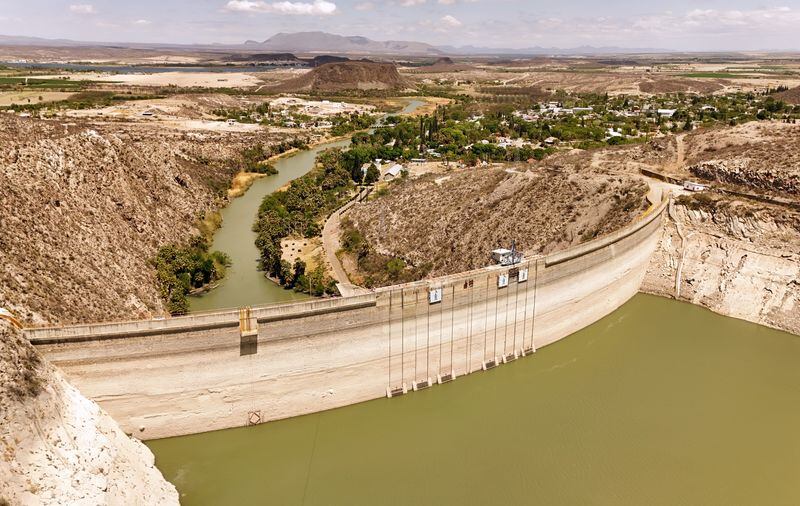
The United States and Mexico have reached an agreement to comply with current water obligations affecting U.S. farmers and ranchers and for Mexico to cover its water deficit to Texas under the 1944 Water Treaty, the U.S. Department of Agriculture said in a statement.
The department уточified that the agreement applies to both the current cycle and the water deficit from the previous cycle.
On Monday, U.S. President Donald Trump accused Mexico of failing to comply with the water-sharing treaty between the two countries, which requires the United States to deliver 1.85 billion cubic meters of water from the Colorado River, while Mexico must supply 432 million cubic meters from the Rio Grande.
Mexico is behind on its commitments. According to Washington, the country has accumulated a deficit of more than one billion cubic meters of water over the past five years.
“This violation is severely harming our beautiful crops and our livestock in Texas,” Trump wrote on Monday.
The Department of Agriculture said on Friday that Mexico had agreed to supply 250 million cubic meters of water starting next week and to work toward closing the shortfall.
Agriculture Secretary Brooke Rollins, quoted in the statement, said Mexico delivered more water in a single year than it had over the previous four years combined.
Trump has said that if Mexico continues to fall short of its obligations, the United States reserves the right to impose 5% tariffs on imported Mexican products.
Mexico’s Deputy Foreign Minister for North America, Roberto Velasco, said that a severe drought in 2022 and 2023prevented the country from meeting its commitments.
International
Several people shot in attack on Brown University campus
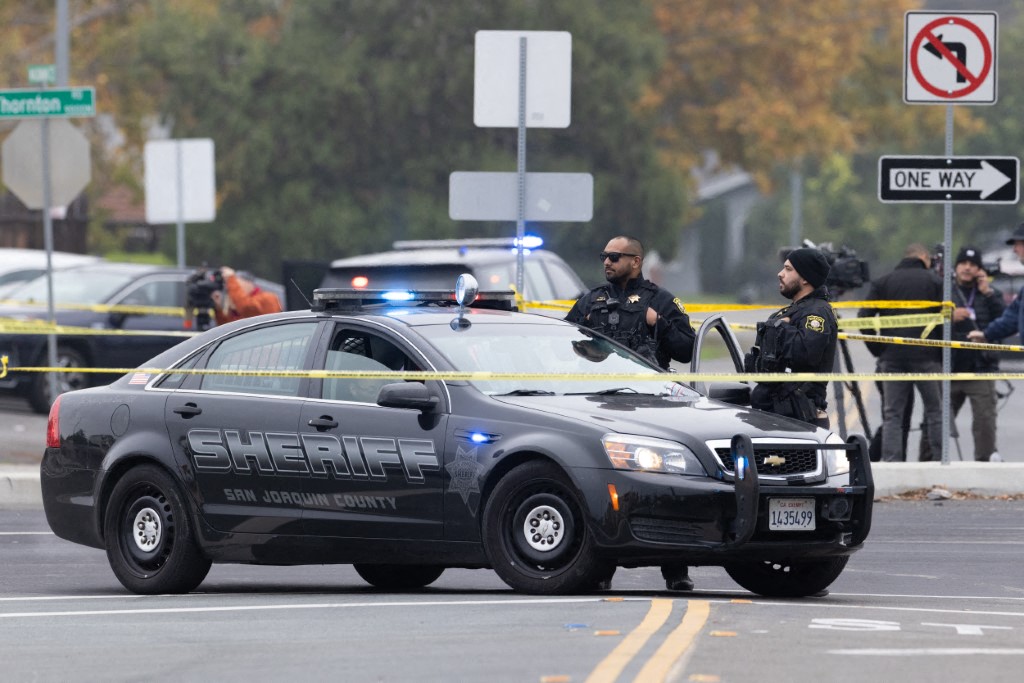
Several people were shot on Saturday in an attack on the campus of Brown University, in the northeastern United States, local police reported.
“Shelter in place and avoid the area until further notice,” the Providence Police Department urged in a post on X. Brown University is located in Providence, the capital of the state of Rhode Island.
U.S. President Donald Trump said on his social media platform Truth Social that he had been briefed on the situation and that the FBI was on the scene.
At 5:52 p.m. local time (11:52 p.m. GMT), Brown University said the situation was still “ongoing” and instructed students to remain sheltered until further notice.
After initially stating that the suspect had been taken into custody, Trump later posted a second message clarifying that local police had walked back that information. “The suspect has NOT been apprehended,” the U.S. president said.
-

 International5 days ago
International5 days agoWashington declares State of Emergency as atmospheric river brings severe flooding
-

 International5 days ago
International5 days agoU.S. to require five-year social media history from tourists under Visa Waiver Program
-

 Central America4 days ago
Central America4 days agoHonduras election crisis deepens as CNE president denounces intimidation attempts
-

 Central America5 days ago
Central America5 days agoOAS and EU urge honduran political actors to respect vote results and avoid unrest
-

 International4 days ago
International4 days agoCuba battles out-of-control dengue and chikungunya epidemic as death toll rises to 44
-

 International4 days ago
International4 days agoColombia says it would not reject Maduro asylum request as regional tensions escalate
-

 International2 days ago
International2 days agoSeveral people shot in attack on Brown University campus
-

 International14 hours ago
International14 hours agoPolice investigate deaths of Rob Reiner and wife as apparent homicide
-

 Central America1 day ago
Central America1 day agoPanama seizes over three tons of drugs hidden in Caribbean port container
-

 International4 days ago
International4 days agoEcuador on track for record violence as homicides hit highest level in Latin America again
-

 International5 days ago
International5 days agoSix ecuadorian soldiers jailed pending trial for alleged extrajudicial execution
-

 Central America14 hours ago
Central America14 hours agoOAS urges swift recount in Honduras as election results remain uncertain
-

 International2 days ago
International2 days agoU.S. and Mexico Reach Deal to Address Water Deficit Under 1944 Treaty

























